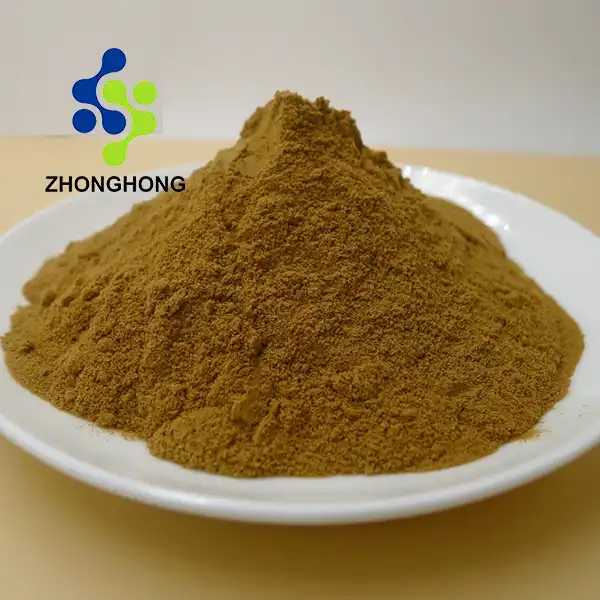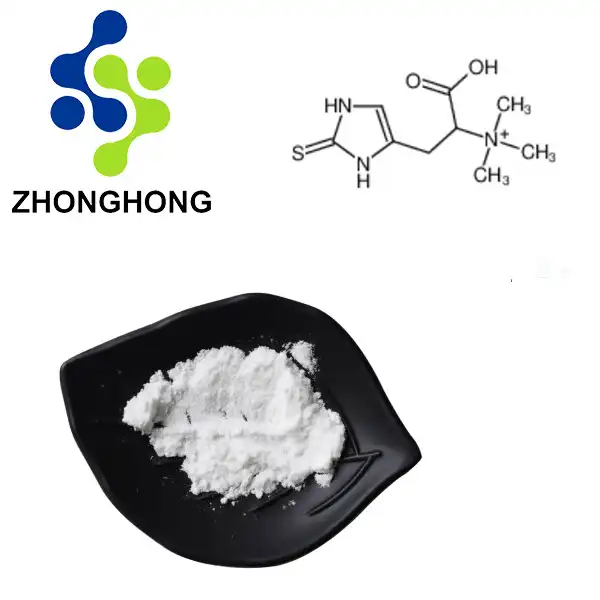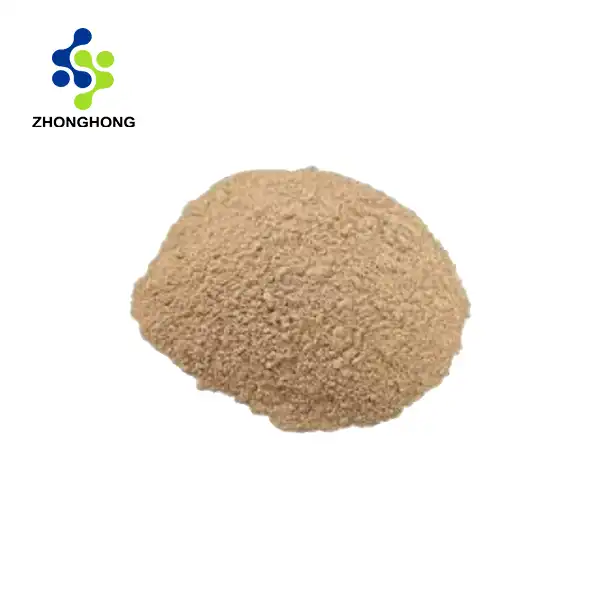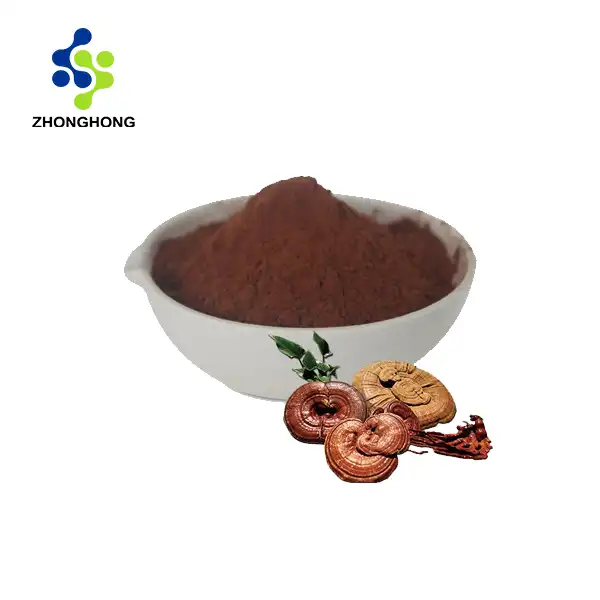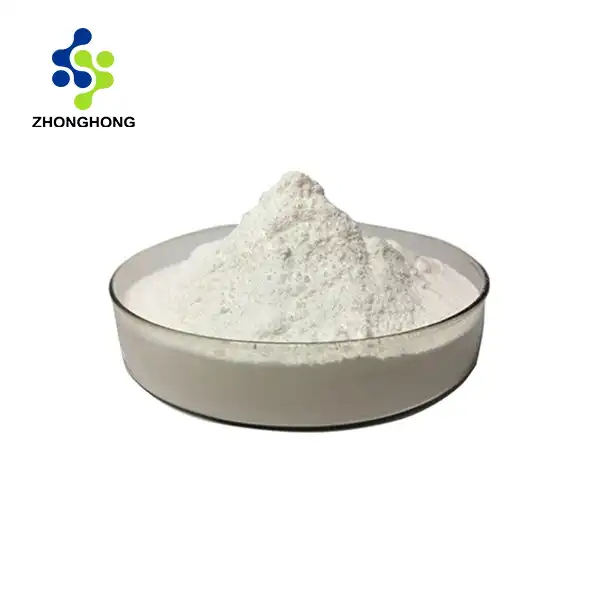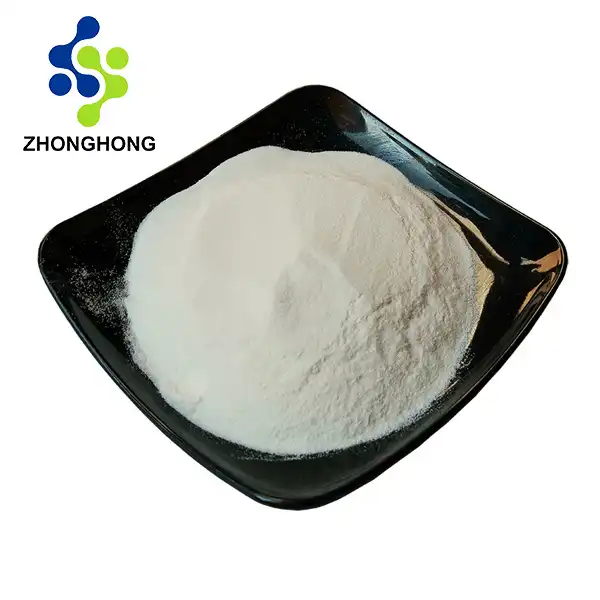Why Alpha Lipoic Acid Powder is Essential for Energy Boost?
2024-11-11 10:48:06
In today's fast-paced world, maintaining optimal energy levels is crucial for peak performance in both personal and professional spheres. Enter Alpha Lipoic Acid (ALA) powder, a potent antioxidant that's gaining recognition for its remarkable energy-boosting properties. This powerful compound, naturally produced in our bodies and found in certain foods, is now available as a supplement, offering a myriad of benefits for those seeking to enhance their vitality and overall well-being.
Alpha Lipoic Acid, often dubbed the "universal antioxidant," is unique in its ability to function in both water and fat-soluble environments within our cells. This versatility allows it to combat free radicals throughout the body, protecting our cells from oxidative stress and supporting various bodily functions. But what makes ALA powder particularly exciting is its role in cellular energy production and its potential to amplify physical performance.
In this comprehensive guide, we'll explore the science behind Alpha Lipoic Acid's energy-boosting capabilities, delve into its benefits for physical performance, and provide insights on selecting the right ALA supplement for your needs. Whether you're an athlete looking to enhance your endurance, a professional aiming to increase productivity, or simply someone seeking to revitalize your daily life, understanding the power of Alpha Lipoic Acid powder could be your key to unlocking sustained energy and improved well-being.
How Alpha Lipoic Acid Supports Cellular Energy?
At the core of Alpha Lipoic Acid's energy-boosting prowess lies its pivotal role in cellular metabolism. ALA is a crucial cofactor for several mitochondrial enzyme complexes involved in energy production. The mitochondria, often referred to as the "powerhouses" of our cells, are responsible for generating the majority of our cellular energy in the form of adenosine triphosphate (ATP).
Alpha Lipoic Acid enhances this energy production process in several ways:
- Mitochondrial Function: ALA improves mitochondrial function by activating a protein called AMPK (AMP-activated protein kinase). This activation leads to increased mitochondrial biogenesis, essentially creating more cellular powerhouses to boost energy production.
- Glucose Uptake: Alpha Lipoic Acid enhances glucose uptake in cells, particularly in muscle tissue. By improving insulin sensitivity, ALA helps shuttle more glucose into cells, providing them with the necessary fuel for energy production.
- Antioxidant Protection: As a powerful antioxidant, ALA protects mitochondria from oxidative damage. This protection ensures that these cellular powerhouses can function optimally, maintaining efficient energy production.
- Coenzyme Regeneration: ALA has the unique ability to regenerate other antioxidants like Vitamin C, Vitamin E, and Coenzyme Q10. This recycling effect creates a cascade of antioxidant activity, further supporting cellular health and energy production.
The combination of these mechanisms results in a noticeable boost in overall energy levels. Users of Alpha Lipoic Acid powder often report feeling more alert, focused, and energized throughout the day. This increased vitality isn't just a temporary surge but a sustained improvement in energy levels, thanks to ALA's fundamental support of cellular metabolism.
Moreover, Alpha Lipoic Acid's energy-supporting benefits extend beyond just feeling more awake. By enhancing mitochondrial function and glucose metabolism, ALA can potentially improve cognitive function, making it easier to concentrate and tackle complex tasks. This cognitive boost, coupled with increased physical energy, makes Alpha Lipoic Acid powder an attractive supplement for those looking to optimize their performance in all areas of life.
Alpha Lipoic Acid Powder for Enhanced Physical Performance
The benefits of Alpha Lipoic Acid powder extend well beyond basic energy production, making it a valuable ally for athletes and fitness enthusiasts. Its unique properties contribute to enhanced physical performance in several key ways:
- Improved Endurance: By optimizing energy production at the cellular level, ALA can help extend endurance during prolonged physical activities. Athletes may find they can train longer and recover faster, pushing their performance boundaries.
- Enhanced Muscle Recovery: The potent antioxidant properties of Alpha Lipoic Acid help combat exercise-induced oxidative stress. This can lead to reduced muscle soreness and faster recovery times between workouts, allowing for more consistent training.
- Increased Muscle Glucose Uptake: ALA's ability to enhance insulin sensitivity and glucose uptake in muscle cells is particularly beneficial during exercise. This improved fuel delivery to muscles can result in better performance and delayed onset of fatigue.
- Mitochondrial Adaptations: Regular supplementation with Alpha Lipoic Acid powder may promote mitochondrial adaptations in muscle tissue. These adaptations can lead to improved metabolic efficiency, potentially enhancing overall athletic performance.
Research has shown promising results regarding Alpha Lipoic Acid's impact on physical performance. A study published in the Journal of Physiology and Biochemistry found that ALA supplementation improved exercise performance and reduced oxidative stress markers in trained cyclists. Another study in the Journal of the International Society of Sports Nutrition reported that ALA supplementation enhanced training-induced adaptations in muscle growth and performance.
It's worth noting that the benefits of Alpha Lipoic Acid powder for physical performance aren't limited to elite athletes. Recreational exercisers and individuals engaged in regular physical activity can also experience improvements in their workout quality and recovery. The enhanced energy production and reduced oxidative stress can make exercise feel less taxing, potentially encouraging more consistent physical activity habits.
Furthermore, Alpha Lipoic Acid's ability to support glucose metabolism may be particularly beneficial for endurance athletes. By improving the body's ability to utilize glucose for energy, ALA can help maintain stable blood sugar levels during prolonged exercise, potentially delaying the onset of fatigue and improving overall performance.
Choosing the Right Alpha Lipoic Acid Supplement
With the growing popularity of Alpha Lipoic Acid powder, the market is flooded with various supplements. Selecting the right product is crucial to ensure you reap the full benefits of this powerful antioxidant. Here are some key factors to consider when choosing an Alpha Lipoic Acid supplement:
- Form and Bioavailability: Alpha Lipoic Acid is available in two forms: R-ALA and S-ALA. R-ALA is the naturally occurring form and is considered more bioavailable. Look for supplements that specify R-ALA or a high percentage of R-ALA for optimal absorption and efficacy.
- Purity and Quality: Opt for products from reputable manufacturers that adhere to Good Manufacturing Practices (GMP). Third-party testing for purity and potency can provide additional assurance of quality.
- Dosage: The effective dosage of Alpha Lipoic Acid can vary depending on the intended use. For general health and energy support, doses typically range from 300-600 mg per day. However, it's crucial to consult with a healthcare professional to determine the appropriate dosage for your specific needs.
- Additional Ingredients: Some ALA supplements may include complementary ingredients like acetyl-L-carnitine or biotin, which can enhance its effects. Consider whether these additional components align with your health goals.
- Form of Supplement: Alpha Lipoic Acid is available in various forms, including capsules, tablets, and powder. Powder form offers flexibility in dosing and can be easily mixed into beverages or foods, but consider your personal preferences and lifestyle when choosing.
When integrating Alpha Lipoic Acid powder into your regimen, it's important to start with a lower dose and gradually increase it while monitoring your body's response. Some individuals may experience mild side effects such as stomach upset or skin rash, particularly at higher doses. If you experience any adverse reactions, it's advisable to discontinue use and consult a healthcare provider.
It's also worth noting that while Alpha Lipoic Acid is generally considered safe for most people, certain groups should exercise caution. Pregnant or breastfeeding women, individuals with diabetes or thyroid conditions, and those taking certain medications should consult their healthcare provider before starting ALA supplementation.
Conclusion
For optimal results, consistency is key when using Alpha Lipoic Acid powder. Incorporating it into your daily routine, along with a balanced diet and regular exercise, can help maximize its energy-boosting and performance-enhancing benefits. Many users find that taking ALA with meals helps improve absorption and minimize any potential stomach discomfort.
As you embark on your journey with Alpha Lipoic Acid supplementation, remember that individual responses can vary. Pay attention to how your body reacts and adjust your usage accordingly. With the right approach, Alpha Lipoic Acid powder can be a valuable tool in your quest for enhanced energy, improved physical performance, and overall well-being. If you want to get more information about this product, you can contact us at liaodaohai@gmail.com.
References
1. Smith, A.R., et al. (2004). Lipoic acid as a potential therapy for chronic diseases associated with oxidative stress. Current Medicinal Chemistry, 11(9), 1135-1146.
2. Packer, L., Witt, E.H., & Tritschler, H.J. (1995). Alpha-lipoic acid as a biological antioxidant. Free Radical Biology and Medicine, 19(2), 227-250.
3. Ziegler, D., et al. (1999). Treatment of symptomatic diabetic polyneuropathy with the antioxidant α-lipoic acid: a 7-month multicenter randomized controlled trial (ALADIN III Study). Diabetes Care, 22(8), 1296-1301.
4. Koh, E.H., et al. (2011). Effects of alpha-lipoic acid on body weight in obese subjects. The American Journal of Medicine, 124(1), 85.e1-85.e8.
5. Gomes, M.B., & Negrato, C.A. (2014). Alpha-lipoic acid as a pleiotropic compound with potential therapeutic use in diabetes and other chronic diseases. Diabetology & Metabolic Syndrome, 6(1), 80.
6. Shay, K.P., et al. (2009). Alpha-lipoic acid as a dietary supplement: molecular mechanisms and therapeutic potential. Biochimica et Biophysica Acta (BBA)-General Subjects, 1790(10), 1149-1160.
_1728976869676.webp)
